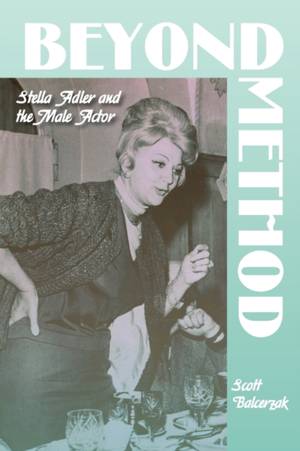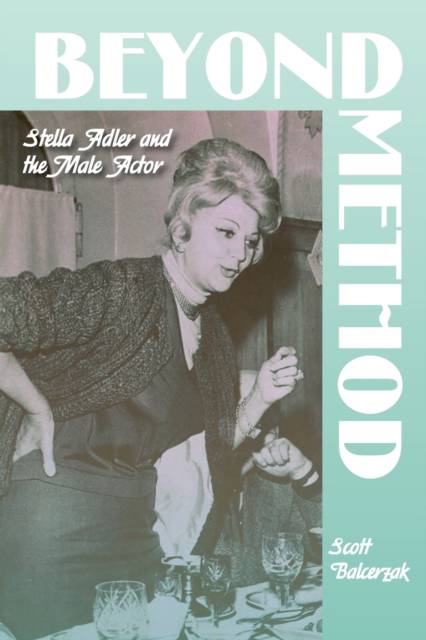
- Afhalen na 1 uur in een winkel met voorraad
- Gratis thuislevering in België
- Ruim aanbod met 7 miljoen producten
- Afhalen na 1 uur in een winkel met voorraad
- Gratis thuislevering in België
- Ruim aanbod met 7 miljoen producten
Omschrijving
Stella Adler (1901-92) trained many well-known American actors, yet throughout much of her career her influence was overshadowed by Lee Strasberg, director of the Actors Studio. In Beyond Method: Stella Adler and the Male Actor, Scott Balcerzak focuses on Adler's teachings and how she challenged Strasberg's psychological focus on the actor's "self" by promoting an empathetic and socially engaged approach to performance. Employing archived studio transcripts and recordings, Balcerzak examines Adler's lessons in technique, characterization, and script analysis as they reflect the background of the teacher-illustrating her time studying with Constantin Stanislavski, her Yiddish Theatre upbringing, and her encyclopedic knowledge of drama. Through this lens, Beyond Method resituates the performances of some of her famous male students through an expansive understanding of the discourses of acting.
The book begins by providing an overview of the gender and racial classifications associated with the male "Method" actor and discussing white maleness in the mid-twentieth century. The first chapter explores the popular press's promotion of "Method" stars during the 1950s as an extension of Strasberg's rise in celebrity. At the same time, Adler's methodology was defining actor performance as a form of social engagement-rather than just personal expression-welcoming an analysis of onscreen masculinity as culturally fluid. The chapters that follow serve as case studies of some of Adler's most famous students in notable roles-Marlon Brando in A Streetcar Named Desire (1951) and The Missouri Breaks (1976), Robert De Niro in Taxi Driver (1976), Henry Winkler in Happy Days (1974-84), and Mark Ruffalo in The Avengers: Age of Ultron (2015). Balcerzak concludes that the presence of Adler altered the trajectory of onscreen maleness through a promotion of a relatively complex view of gender identity not found in other classrooms.
Beyond Method considers Stella Adler as not only an effective teacher of acting but also an engaging and original thinker, providing us a new way to consider performances of maleness on the screen. Film and theater scholars, as well as those interested in gender studies, are sure to benefit from this thorough study.
Specificaties
Betrokkenen
- Auteur(s):
- Uitgeverij:
Inhoud
- Aantal bladzijden:
- 288
- Taal:
- Engels
- Reeks:
Eigenschappen
- Productcode (EAN):
- 9780814342916
- Verschijningsdatum:
- 25/06/2018
- Uitvoering:
- Paperback
- Formaat:
- Trade paperback (VS)
- Afmetingen:
- 152 mm x 229 mm
- Gewicht:
- 381 g

Alleen bij Standaard Boekhandel
Beoordelingen
We publiceren alleen reviews die voldoen aan de voorwaarden voor reviews. Bekijk onze voorwaarden voor reviews.












